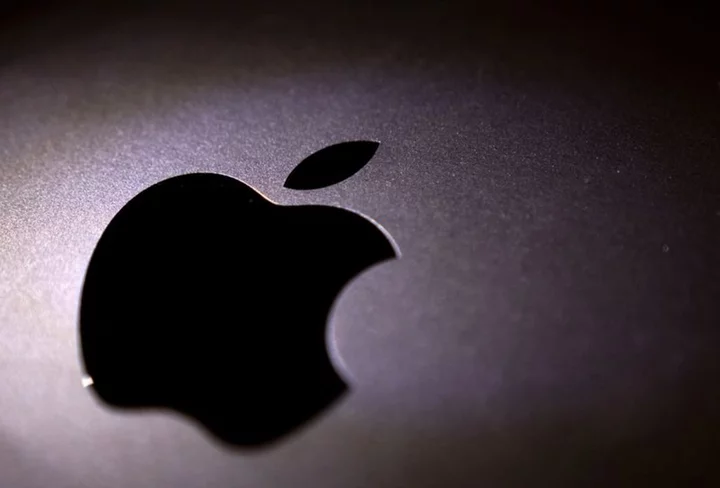
Factbox-U.S. corporate heavyweights' progress report on diversity pledges
The U.S. Supreme Court ruling striking down race-conscious policies in college admissions includes some subtle warnings to companies
2023-07-01 02:17
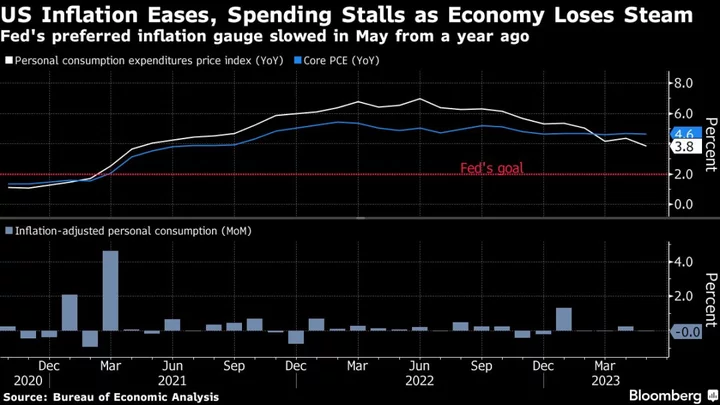
US Consumers Lose Steam, Setting Economy Up for Sharp Slowdown
US consumer spending — the economy’s main engine — has lost steam for most of this year, portending
2023-07-01 01:58
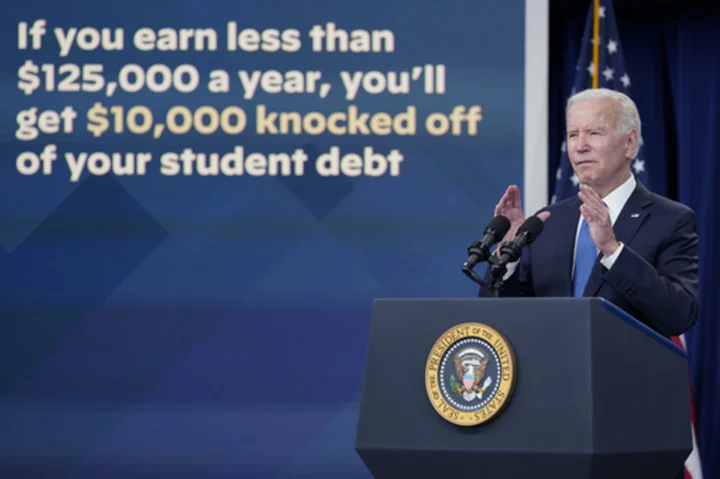
Biden blames GOP for student loan ruling as 2024 political consequences loom
President Joe Biden insisted Friday that “this fight is not over” after the Supreme Court struck down his $400 billion student loan forgiveness plan
2023-07-01 01:57
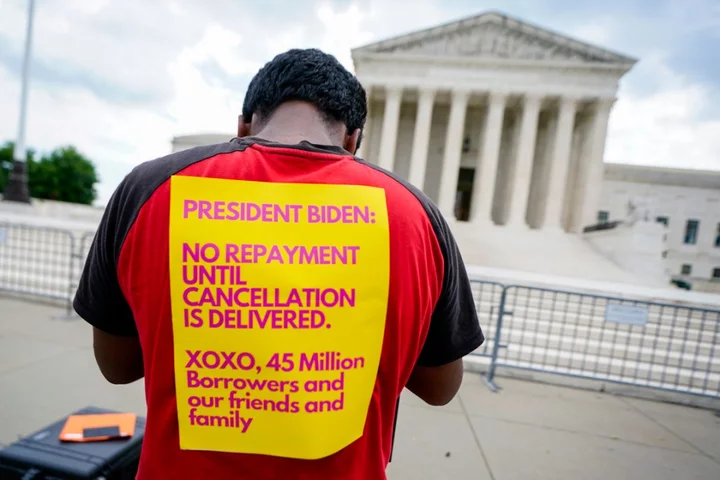
Supreme Court strikes down Biden’s plan to cancel student loan debts
The US Supreme Court has struck down President Joe Biden’s plan to cancel student loan debts for millions of Americans, reversing his campaign-trail promise as borrowers prepare to resume payments this summer. Chief Justice John Roberts delivered the 6-3 decision from the court’s conservative majority on 30 June. The ruling, which stems from a pair of cases challenging the Biden administration and the US Department of Education, argues that the president does not have the authority to implement sweeping relief, and that Congress never authorised the administration to do so. Within 30 minutes on the last day of its term, the court upended protections for LGBT+ people and blocked the president from a long-held promise to cancel student loan balances amid a ballooning debt crisis impacting millions of Americans. Under the plan unveiled last year, millions of people who took out federally backed student loans would be eligible for up to $20,000 in relief. Borrowers earning up to $125,000, or $250,000 for married couples, would be eligible for up to $10,000 of their federal student loans to be wiped out. Those borrowers would be eligible to receive up to $20,000 in relief if they received Pell grants. Roughly 43 million federal student loan borrowers would be eligible for that relief, including 20 million people who stand to have their debts canceled completely, according to the White House. Roughly 16 million already submitted their applications and received approval for debt cancellation last year, according to the Biden administration. The long-anticipated plan for debt cancellation was met almost immediately with litigation threats from conservative legal groups and Republican officials, arguing that the executive branch does not have authority to broadly cancel such debt. Six GOP-led states sued the Biden administration to stop the plan altogether, and a federal appeals court temporarily blocked any such relief as the legal challenges played out. Lawyers for the Biden administration contended that he has the authority to broadly cancel student loan debt under the Higher Education Relief Opportunities for Students Act of 2003, which allows the secretary of education to waive or modify loan provisions following a national emergency – in this case, Covid-19. Justice Roberts wrote that the law allows the secretary to “waive or modify” existing provisions for financial assistance, “not to rewrite that statute from the ground up.” The Supreme Court’s final decision of its 2022-2023 term also comes one day after another major education ruling, as the same conservative majority upended decades of precedent intended to promote racially diverse college campuses, what civil rights groups and the court’s liberal justices have derided as the court’s perversion of the 14th Amendment and the foundational concept of equal protection. Moments before its decision in the student debt plan, the Supreme Court decided a case involving a website designer who refused to cater to same-sex couples, but the case did not involve any such couple. Likewise, the case at the centre of the court’s decision on student loans involved an independent loan servicer in Missouri that did not want to be associated with the lawsuit. The six GOP-led states that led the challenge – Arkansas, Iowa, Kansas, Missouri, Nebraska, and South Carolina – opposed the Biden administration’s plan for a range of reasons that amount to “just general grievances; they do not show the particularized injury needed to bring suit,” Justice Elena Kagan wrote in her dissent. “And the States have no straightforward way of making that showing – of explaining how they are harmed by a plan that reduces individual borrowers’ federal student-loan debt,” she added. “So the States have thrown no fewer than four different theories of injury against the wall, hoping that a court anxious to get to the merits will say that one of them sticks.” She admonished a decision in which “the result here is that the Court substitutes itself for Congress and the Executive Branch in making national policy about student-loan forgiveness.” “The Court acts as though it is an arbiter of political and policy disputes, rather than of cases and controversies,” and by deciding the case, the court exceeds “the permissible boundaries of the judicial role,” Justice Kagan wrote. Since March 2020, with congressional passage of the Cares Act, monthly payments on student loan debt have been frozen with interest rates set at zero per cent. That Covid-19-pandemic era moratorium, first enacted under Donald Trump and extended several times, was paused a final time late last year – until the Education Department is allowed to cancel debts under the Biden plan, or until the litigation is resolved, but no later than 30 June. Payments would then resume 60 days later. The amount of debt taken out to support student loans for higher education costs has surged within the last decade, alongside growing tuition costs, increased private university enrollment, stagnant wages and GOP-led governments stripping investments in higher education and aid, putting the burden of college costs largely on students and their families. The crisis has exploded to a total balance of nearly $2 trillion, mostly wrapped up in federal loans. Millions of Americans also continue to tackle accrued interest without being able to chip away at their principal balances, even years after graduating, or have been forced to leave their colleges or universities without obtaining a degree at all while still facing loan repayments. Borrowers also have been trapped by predatory lending schemes with for-profit institutions and sky-high interest rates that have made it impossible for many borrowers to make any progress toward paying off their debt, with interest adding to balances that exceed the original loan. One analysis from the Education Department found that nearly 90 per cent of student loan relief would support people earning less than $75,000 per year. The median income of households with student loan balances is $76,400, while 7 per cent of borrowers are below the poverty line. That debt burden also falls disproportionately on Black borrowers and women. Black college graduates have an average of $52,000 in student loan debt and owe an average of $25,000 more than white graduates, according to the Education Data Initiative. Four years after graduating, Black student loan borrowers owe an average of 188 per cent more than white graduates. Women borrowers hold roughly two-thirds of all student loan debt, according to the American Association of University Women. Mr Biden’s announcement fulfilled a campaign-trail pledge to wipe out $10,000 in student loan debt per borrower if elected, though debt relief advocates and progressive lawmakers have urged him to cancel all debts and reject means-testing barriers in broad relief measures. In November 2020, the president called on Congress to “immediately” provide some relief for millions of borrowers saddled by growing debt. “[Student debt is] holding people up,” he said at the time. “They’re in real trouble. They’re having to make choices between paying their student loan and paying the rent.” ReNika Moore, director of the Racial Justice Program with the ACLU, among civil rights groups that filed briefs with the Supreme Court to defend the loan cancellation plan, said the “one-two punch” to end affirmative action and block debt relief will lock Americans out of economic oppurtunity and worsen wealth equality. “We urge the Biden administration and the Department of Education to move quickly to explore other pathways to ease the debt load on student loan borrowers once payments resume after a pandemic-related pause, including new executive action under the Higher Education Act, a law that allows for student loan relief for certain groups,” she added. Read More Supreme Court allows Colorado designer to deny LGBT+ customers in ruling on last day of Pride Month Biden condemns Supreme Court striking down affirmative action: ‘This is not a normal court’ Justice Ketanji Brown Jackson delivers searing civil rights lesson in dissent to affirmative action ruling The Supreme Court’s ruling on affirmative action is ugly and frustrating – but no surprise
2023-07-01 01:54
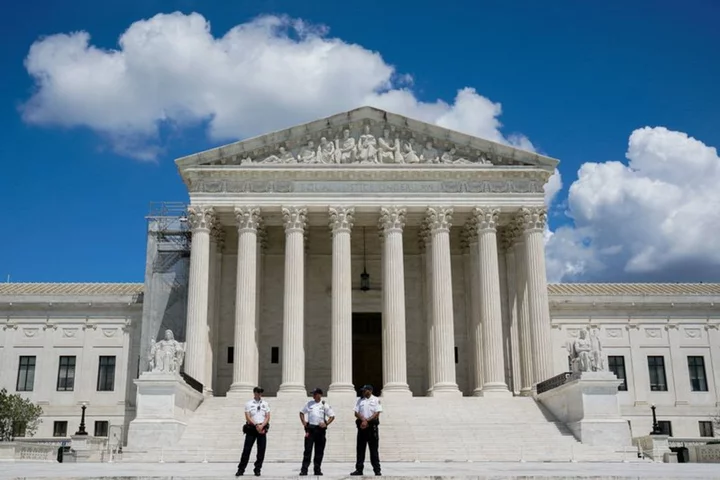
U.S. Supreme Court to consider scope of workplace bias law
By Daniel Wiessner The U.S. Supreme Court on Friday agreed to decide whether workers can bring discrimination lawsuits
2023-07-01 01:53

EY Announces Sonya Locke of EDS Service Solutions, LLC as an Entrepreneur Of The Year® 2023 Southeast Award Winner
ATLANTA--(BUSINESS WIRE)--Jun 30, 2023--
2023-07-01 01:52
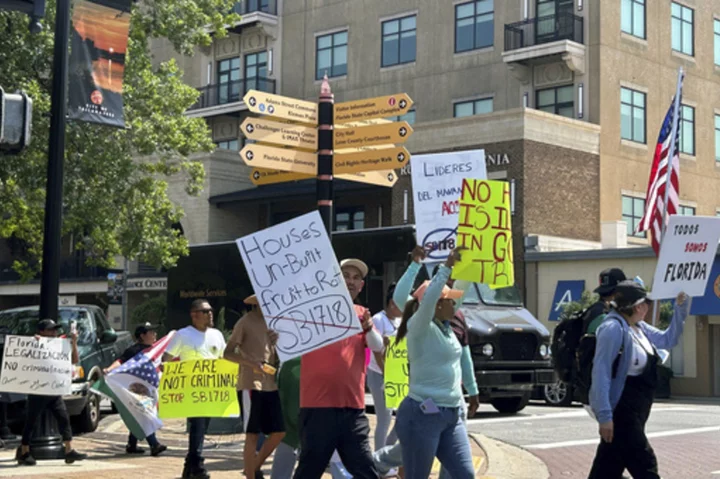
Florida's new DeSantis-backed laws address immigration, guns and more
Employers who hire immigrants in the country illegally will face tough punishments and gun owners will have more freedoms when more than 200 new Florida laws take effect Saturday
2023-07-01 01:52

Rioters target Apple Store in daylight looting in French city
Young rioters went on a daylight looting spree Friday in the French city of Strasbourg, targeting an Apple Store and other shops following the fatal shooting of a...
2023-07-01 01:45
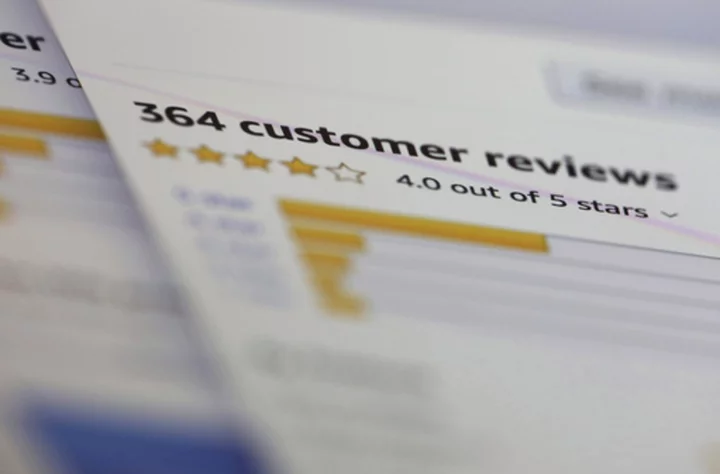
Bogus online reviews are targeted by US regulators with new, proposed bans
The Federal Trade Commission on Friday proposed a new rule that would ban paying for reviews, suppressing honest reviews, selling fake social media engagement and more
2023-07-01 01:22
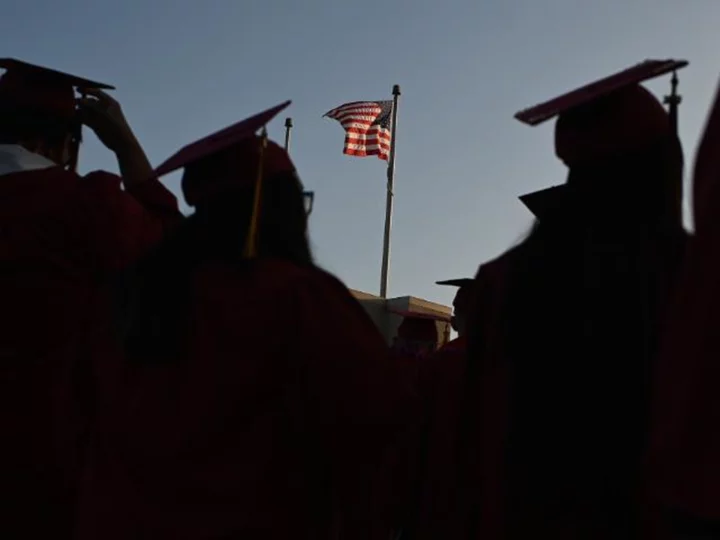
Here's when your student loan payments will start again
After a more than three-year pause, borrowers will have to restart paying their federal student loan bills in October.
2023-07-01 01:22
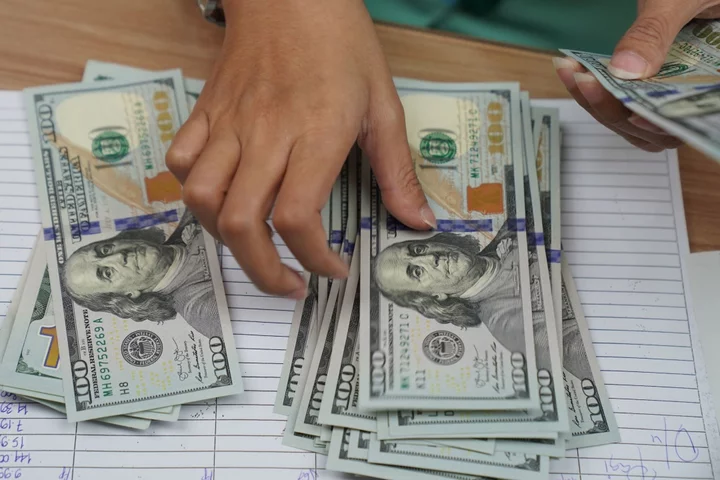
Without Student-Loan Relief, US Consumers Face Another Headwind
The US Supreme Court’s ruling throwing out President Joe Biden’s student-loan relief plan will likely further dent consumer
2023-07-01 01:21

Prince Harry seeks $406,000 in phone hacking lawsuit against British tabloid publisher
Prince Harry is seeking 320,000 pounds ($406,000) in his phone hacking lawsuit against the publisher of the Daily Mirror tabloid
2023-07-01 01:20
You Might Like...
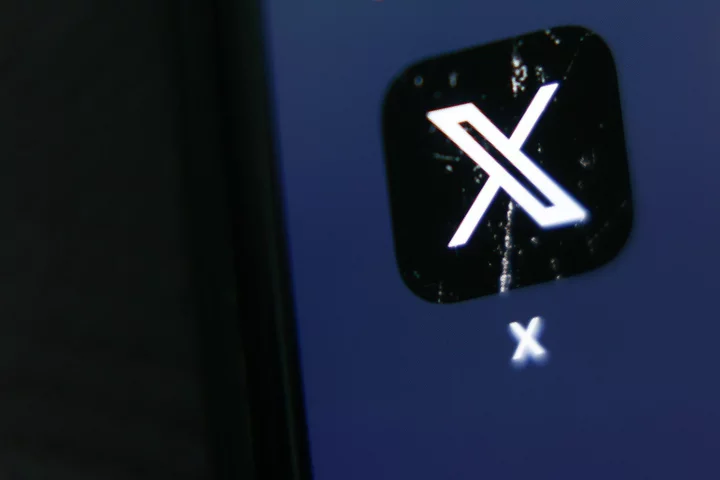
X is no longer labeling ads for some users
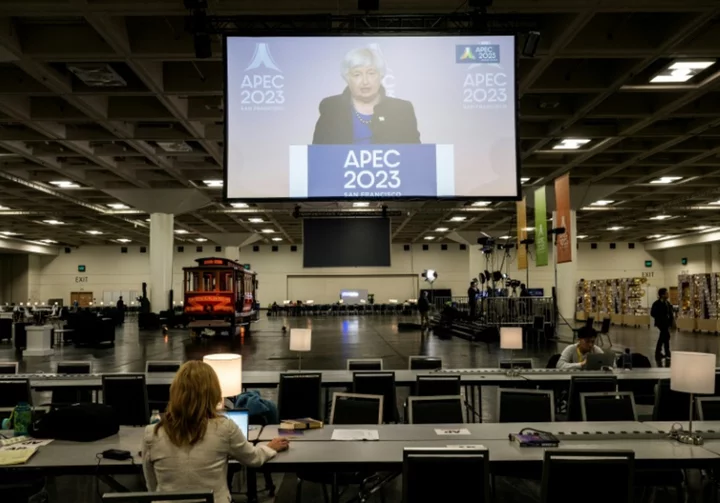
US postpones Asia trade deal rollout after domestic fire

The Greek Theatre Named Amphitheater of the Year by International Entertainment Buyers Association
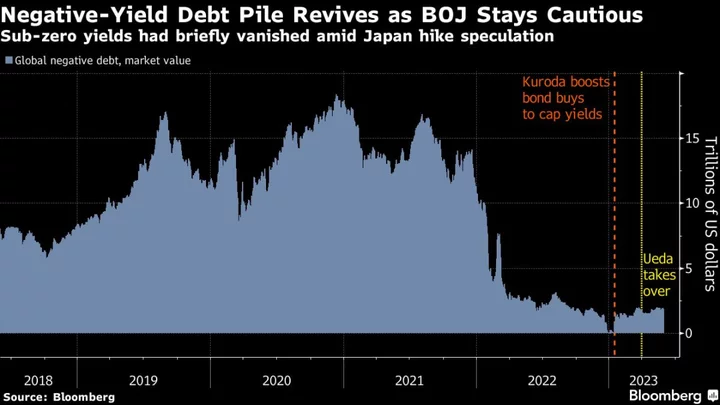
Negative-Yielding Debt Returns to Almost $2 Trillion on BOJ
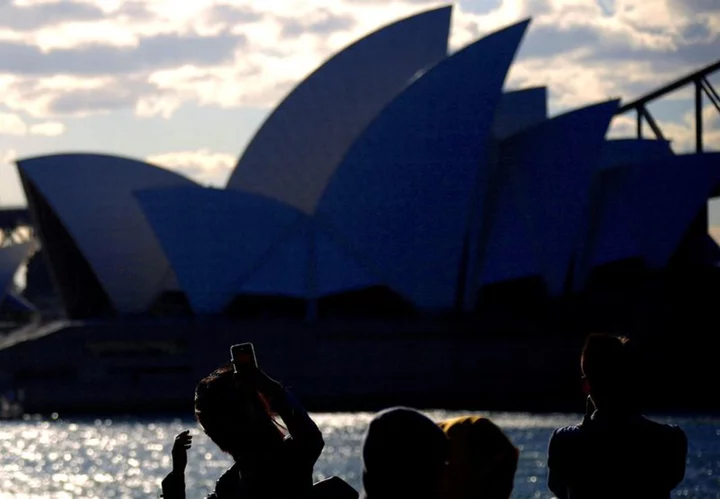
Australia's visa overhaul leaves Chinese millionaires in limbo

Funds Sold as ‘Sustainable’ Hit by Crossborder Reality Check
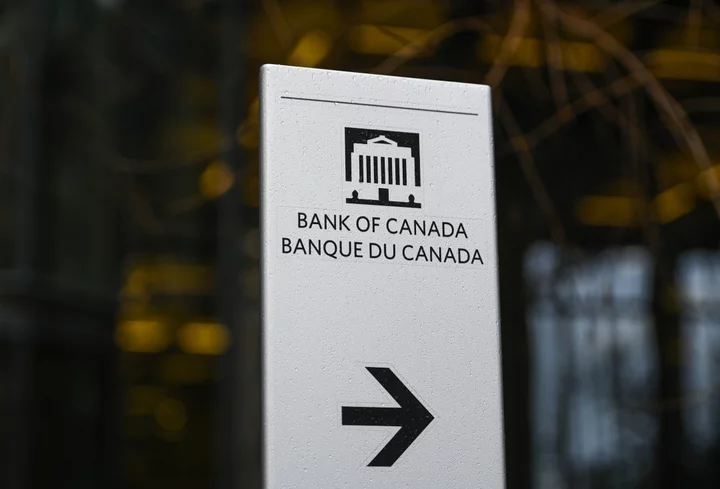
Canada Business Outlook Drops; Firms See Inflation Lingering

Avoid these 3 business mistakes during the holiday season
